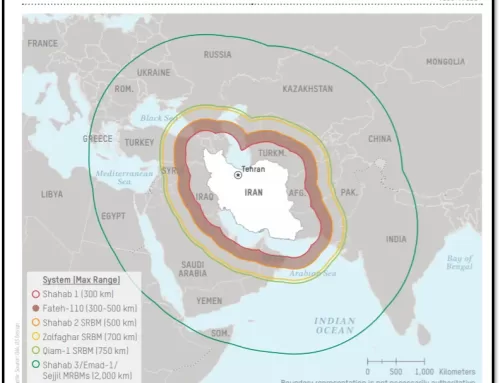The Weakness of ‘Maximum Pressure’
Originally appeared at The American Conservative.
An Iranian tanker delivered some gasoline to Venezuela this week, and this is how the report in The New York Times framed the event:
Venezuela needs gasoline and has gold. Iran has oil but needs cash. Both Venezuela and Iran are eager to punch back at the Trump administration. And the U.S. government, distracted by the coronavirus pandemic and having already issued harsh sanctions, is left with few retaliatory options beyond military intervention [bold mine-DL].
The US is already strangling both Venezuela and Iran through economic warfare, so the idea that the US would be “retaliating” against the two countries when they seek to trade with each other is bizarre. Two countries that our government has targeted with cruel and unnecessary sanctions have found a limited way to cooperate in an effort to stave off some of the worst effects of economic war, but somehow in the news reporting this is taken as a transgression that calls for punishment and “retaliation.” The warped and false assumption that the US has the right to do any of this is simply taken for granted. The US has any number of options available here that don’t involve attacking other countries for engaging in commerce, but because they aren’t punitive and militarized they are treated as if they don’t exist. It is no wonder that our foreign policy is always biased in favor of “action” when even supposedly straight news stories present a small oil shipment to an impoverished country as something that demands a US response.
There have been other ludicrous overreactions to the handful of Iranian tankers heading towards Venezuela in the news reporting in the last week. The most comical may have been the Wall Street Journal’s claim that Iran’s trade with Venezuela represents a challenge to the Monroe Doctrine:
Iran’s burgeoning efforts to build a trading and political outpost in Latin America present a challenge to the US’s nearly two-century-old Monroe Doctrine, which opposes international interference in the Western Hemisphere.
The WSJ article misrepresents the Monroe Doctrine and it also fuels the absurd notion that commerce between two much weaker states poses some kind of threat to the US The Monroe Doctrine did not say that other states could not trade with other countries in this hemisphere, and it wasn’t a rejection of other states having normal or even close diplomatic relations with them. It was a statement that affirmed US respect for the sovereignty and independence of our neighbors, and it opposed any attempt by European powers to deprive the new countries in this hemisphere of their independence and form of government. The Monroe Doctrine was above all a declaration of noninterference in the affairs of our neighbors, but for more than a century it has been abused and turned into a license to interfere. If there is anyone violating the Monroe Doctrine in Venezuela right now, it is the US government itself.
It is predictable that two countries that the US is trying to strangle into submission would seek to work together, especially when Iran can’t trade with its neighbors as easily because of pandemic restrictions. Iran and Venezuela had good relations before now, so it is not surprising that they would want to improve those relations as they are cut off from other markets by senseless and destructive US policies. The limited nature of their cooperation should also remind us that neither of them poses a real threat to the US Our government’s obsession with regime change in both places is a function of a very warped foreign policy debate that privileges the preferences of exiles and ideologues over the interests of the United States. Tens of millions of innocent Venezuelans and Iranians are forced to undergo greater hardship and deprivation for the sake of indulging those obsessions. These are shameful and ugly policies, and the sooner they are ended the better off everyone will be.
As if to highlight the absurdity of the administration’s Venezuela and Iran policies, an administration official recently declared that the US would not tolerate Iran’s “continued meddling in Venezuelan affairs.” The US is working to depose the Venezuelan government and replace it with another, but we’re supposed to believe that a few Iranian tankers that Venezuela wants constitute “meddling” in their affairs. The administration’s propagandists are either getting very lazy, or they have started to believe their own fantasies. Nothing could better illustrate the bankruptcy and weakness of the administration’s Venezuela and Iran policies than their public hand-wringing over a few shipments between two states that don’t pose any threat to us.
Daniel Larison is a senior editor at The American Conservative, where he also keeps a solo blog. He has been published in the New York Times Book Review, Dallas Morning News, Orthodox Life, Front Porch Republic, The American Scene, and Culture11, and is a columnist for The Week. He holds a PhD in history from the University of Chicago, and resides in Dallas. Follow him on Twitter. This article is reprinted from The American Conservative with permission.







Leave A Comment
You must be logged in to post a comment.